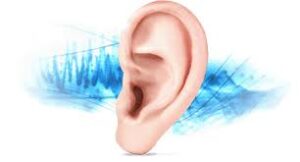Tinnitus is a condition characterized by the perception of sound in the absence of an external sound source.
People with tinnitus may hear various types of sounds, such as ringing, buzzing, hissing, or clicking, in one or both ears.
The sound can be intermittent or continuous, and it can range from a mild annoyance to a severe disturbance that interferes with daily activities and sleep.

Tinnitus is a common problem, affecting around 10-15% of the population.
It can be caused by a variety of factors, including exposure to loud noise, ear infections, certain medications, hearing loss, and underlying health conditions such as high blood pressure or cardiovascular disease.
There is no cure for tinnitus, but there are several management strategies that can help alleviate its symptoms.
These may include sound therapy, cognitive-behavioral therapy, relaxation techniques, and medication in some cases.
It is important to consult with a healthcare professional, such as an audiologist or an ear, nose, and throat (ENT) doctor, for proper diagnosis and management of tinnitus.
